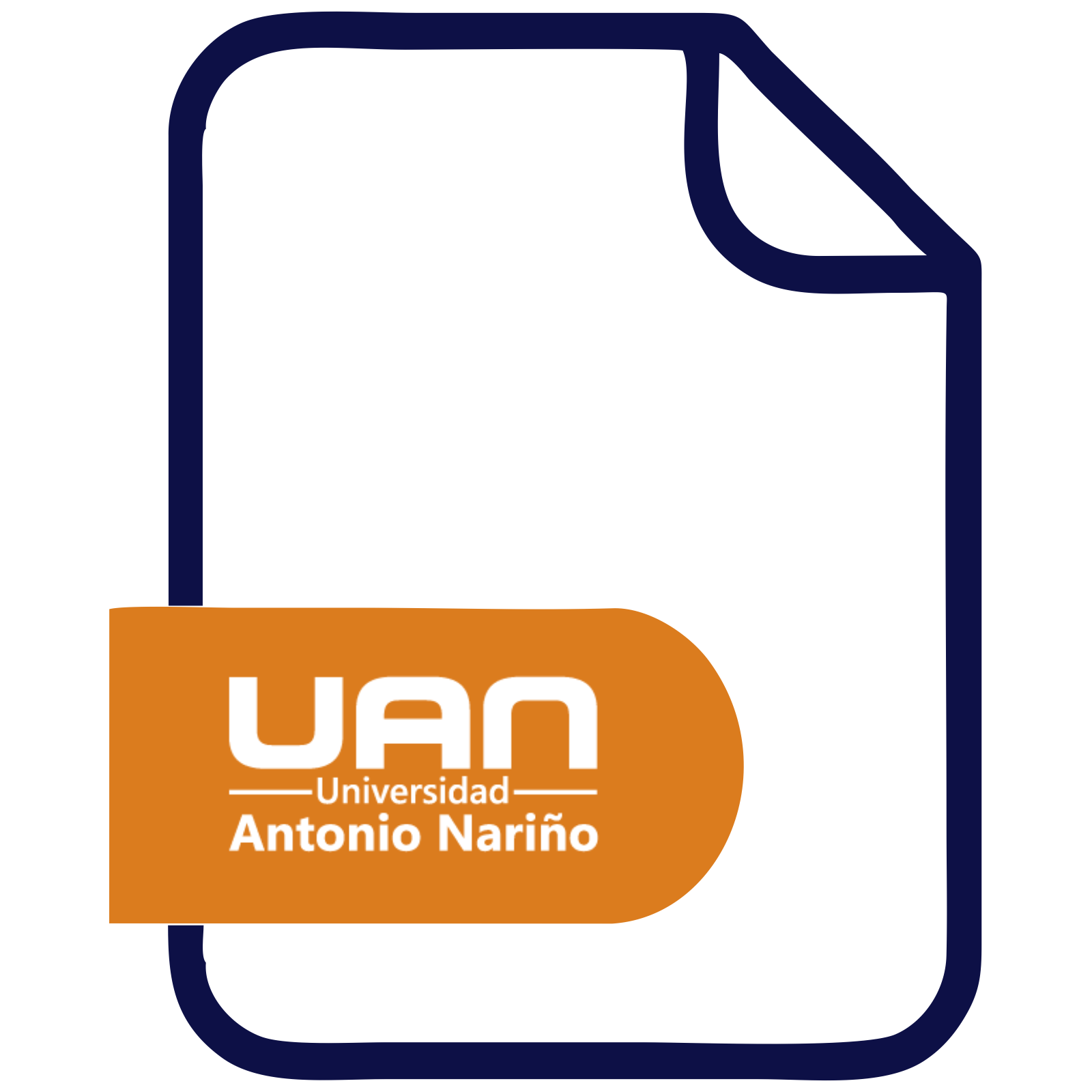Por favor, use este identificador para citar o enlazar este ítem:
http://repositorio.uan.edu.co/handle/123456789/1947> Repositorio UAN
Repositorio UANComunidades y ColeccionesTitulosMateriasAutoresFecha de publicacion
Mi CuentaAccederRegistro
Mi CuentaAccederRegistro
| Título : | Modelo metodológico comparativo para estudios etnomatemáticos. |
| metadata.dc.creator: | Uribe Suarez, David Enrique |
| metadata.dc.contributor.advisor: | Acevedo Caicedo, Myriam Rojas Velázquez, Osvaldo Jesús |
| Palabras clave : | Etnomatemática |
| Resumen : | The research described in this document presents the methodological model (MOC-ETNO), as a theoretical contribution, made up of four phases, description, interpretation, comparison and actions, to identify and contrast the ancestral practices of the Wayúu culture with other ethnic groups concerning both knowing and doing with regard to standards of measurement. The model is supported and theoretically based on each of the dimensions of the ethnomathematics program, with special emphasis on universal mathematical activities as proposed by Bishop, and on the use of the comparative method with the purpose of generating intercultural dialogues. This perspective allows a contribution from the ethnomathematical scientific research program, which aims to describe and interpret the particular ways of knowing of the different cultural groups in their effort to subsist and transcend, as well as support for the growth of mathematical content which is brought to the classroom with its respective teaching strategies. The research is located within the qualitative-hermeneutical research paradigm, with a relativistic and ethnographic approach (for the application of said methodological model); it tries to describe or interpret some human phenomena, often in the words of the selected individuals (informants), instead of considering the researcher's perspective. The practical contributions of this research can be synthesized in three aspects: first, development and analysis of an ethnographic study, which makes it possible to make visible the mathematical activity of measurement in the cultural practices of the group; second, the comparison (intercultural dialogue) with some standard units and categories in each cultural group, which supports said dialogue; and third, the design of didactic activities contextualized in their cultural practices according to the ethnography previously carried out, and implemented in the classroom under some orientations of the notion of objectivity and aims of ethnomathematics. |
| metadata.dc.description.tableofcontents: | La investigación que se describe en este documento presenta el modelo metodológico (MOC-ETNO), como un aporte teórico, compuesto de cuatros fases: (descripción, interpretación, comparación y acciones) para identificar y contrastar las prácticas ancestrales de la cultura wayúu con otros grupos étnicos, respecto al saber y al hacer con patrones de medida. El modelo se sustenta y fundamenta teóricamente en cada una de las dimensiones del programa de etnomatemática, con énfasis especial en las actividades matemáticas universales, propuestas por Bishop, y en el uso del método comparativo, con el propósito de generar diálogos interculturales. Esta perspectiva permite un aporte desde el programa de investigación científica de etnomatemática, que pretende describir e interpretar las diversas formas de conocer de los distintos grupos culturales en su esfuerzo por subsistir y transcender, como también el apoyo al crecimiento de los contenidos matemáticos que son llevados al aula con sus respectivas estrategias didácticas. La investigación se ubica dentro del paradigma de investigación cualitativo – hermenéutico, con un enfoque relativista y de tipo etnográfico (para la aplicación de dicho modelo metodológico), que trata de describir o interpretar algunos fenómenos humanos, a menudo en palabras propias de los individuos seleccionados (informantes), en vez de considerar la perspectiva del investigador. Los aportes prácticos de esta investigación se pueden sintetizar en tres aspectos: primero, desarrollo y análisis de un estudio etnográfico que permite visibilizar la actividad matemática de medición en las prácticas culturales del grupo; segundo, la comparación (diálogo intercultural) con unas unidades y categorías estándar en cada grupo cultural que admite dicho diálogo; y tercero, el diseño de actividades didácticas contextualizadas en sus prácticas culturales según la etnografía previamente realizada, e implementadas en el aula bajo algunas orientaciones de la noción de objetividad y fines de la etnomatemática. |
| URI : | http://repositorio.uan.edu.co/handle/123456789/1947 |
| Editorial : | Universidad Antonio Nariño |
| metadata.dc.publisher.campus: | Bogotá - Federmán |
| metadata.dc.publisher.faculty: | Facultad de Educación |
| metadata.dc.date.created: | 2020-07-11 |
| Aparece en las colecciones: | Doctorado en Educación matemática |
Ficheros en este ítem:
| Fichero | Tamaño | |
|---|---|---|
| 2020DavidUribe.pdf | 2.59 MB | Visualizar/Abrir |
| 2020AutorizacióndeAutores.pdf Restricted Access | 655.86 kB | Visualizar/Abrir Request a copy |
Los ítems de DSpace están protegidos por copyright, con todos los derechos reservados, a menos que se indique lo contrario.



